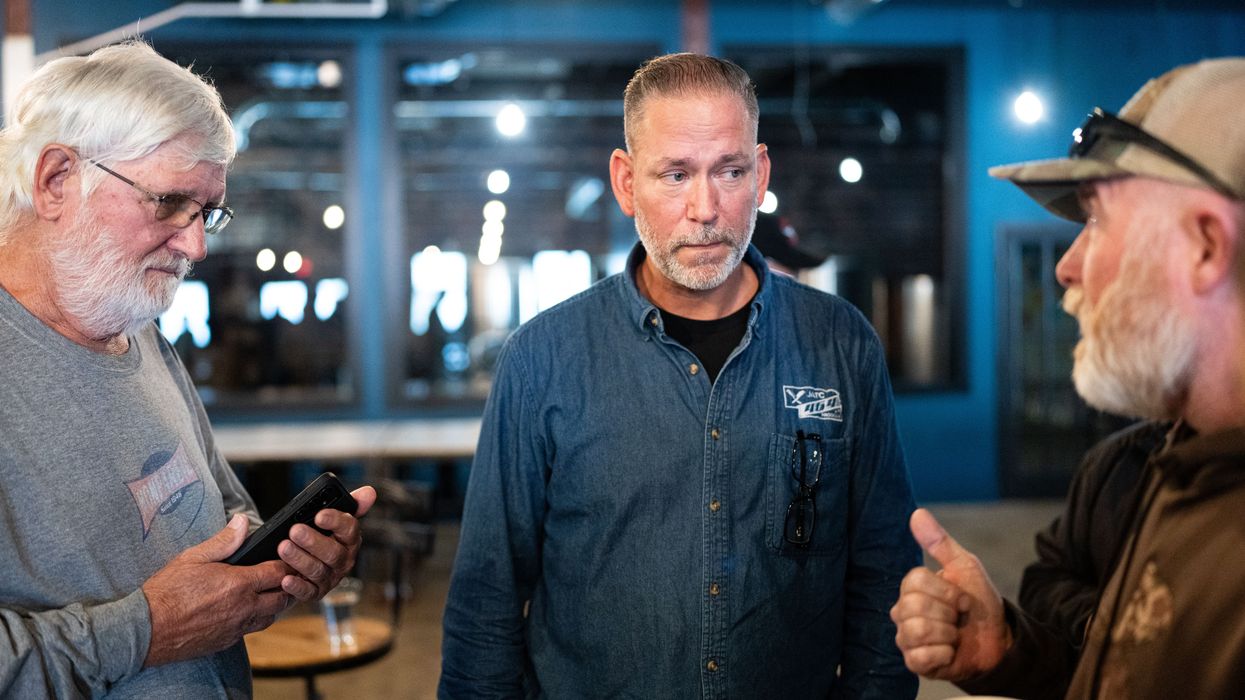Investigation Shows How Decades of Corporate Consolidation Have Devastated US Cattle Ranchers
"The marketplace is fundamentally broken," one rancher explained.
Even as US beef prices have continued to surge, American cattle ranchers have come under increased financial pressure—and a new report from More Perfect Union claims that this is due in part to industry consolidation in the meat-packing industry.
Bill Bullard, the CEO of the trade association R-CALF USA, explained to More Perfect Union that cattle ranchers are essentially at the bottom of the pyramid in the beef-producing process, while the top is occupied by "four meat packers controlling 80% of the market."
"It's there that the meat packers are able to exert their market power in order to leverage down the price that the cattle feeder receives for the animals," Bullard said.
To illustrate the impact this has had on farmers, Bullard pointed out that cattle producers in 1980 received 63 cents for every dollar paid by consumers for beef, whereas four decades later they were receiving just 37 cents for every dollar.
"That allocation has flipped on its head because the marketplace is fundamentally broken," Bullard told More Perfect Union.
Angela Huffman, president of Farm Action, recently highlighted the role played by the four big meatpacking companies—Tyson, Cargill, National Beef, and JBS—in hurting US ranchers.
Writing on her Substack page earlier this month, Huffman zeroed in on Tyson's recent decision to close one of its meatpacking plants in Lexington, Nebraska to demonstrate the outsize power that big corporations have over the US food supply.
The Lexington plant employs more than 3,000 people and is capable of processing 5,000 head of cattle a day, and its closure is expected to both devastate the local economy and have a major impact on US ranchers throughout the region.
Huffman noted a report from the Associated Press estimating that the Lexington plant's closure, combined with projected job cuts at a Tyson plant in Amarillo, Texas, could cut national beef processing capacity by up to 9%.
"Ranchers were already dealing with high costs, drought, and years of uneven prices," Huffman wrote. "Now they face even less competition for their cattle. When there are fewer packers active in the market, ranchers have less bargaining power, and cattle prices fall even as beef prices in grocery stores stay near record highs."
Dan Osborn, an independent US Senate candidate running in Nebraska, has made the dangers of corporate consolidation a central theme of his campaign, and on Monday he released a video explaining why he spends so much time talking about monopolies, particularly in the agricultural industry.
"If you're a farmer, your inputs, your seed, your chemicals, you have to buy from monopolies," he said. "Sygenta, Chinese-owned company you've got to buy your seed from, they control and manipulate that market. And then when your production's over and you're selling it, you're selling it to monopolies as well."
Want to know why I talk about MONOPOLIES all the time? This is why. 👇 pic.twitter.com/MuYh0gZRVr
— Dan Osborn (@osbornforne) December 22, 2025
Osborn said that the trend of industry consolidation wasn't just limited to agriculture, but is now moving forward with major railroad and media mergers.
"We need to create an economic environment in this country that favors competition," he said. "That's what a free market is. A free market isn't three or four big people or big corporations controlling everything."


